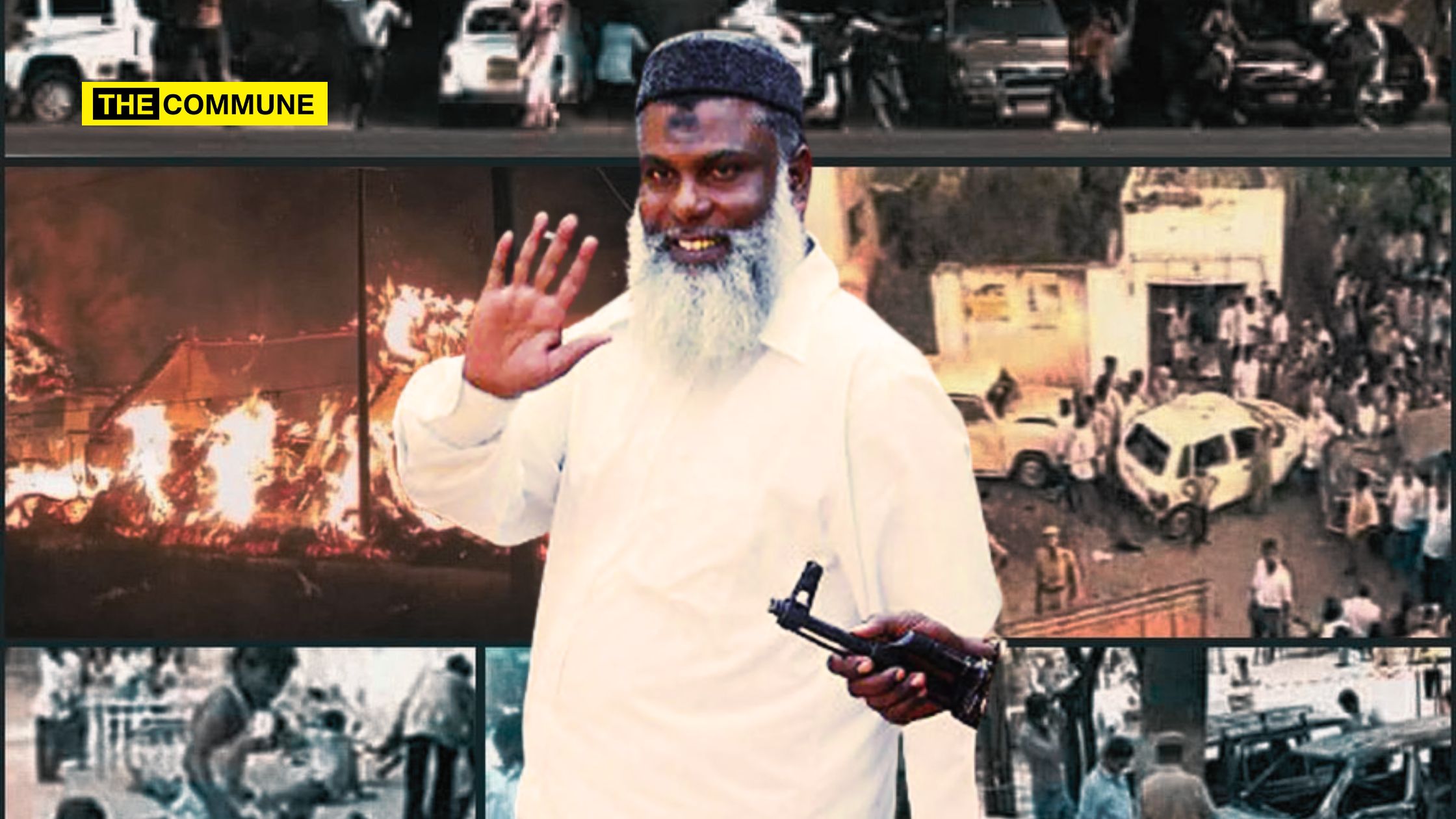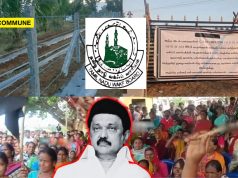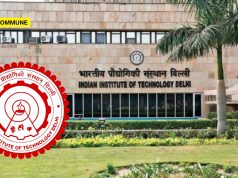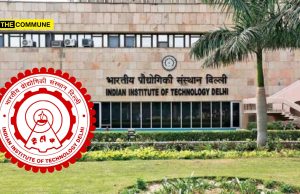
Political leaders in Tamil Nadu have come under heavy criticism for their alleged minority appeasement politics following the recent death of SA Basha, the Islamist terrorist and founder of Al Ummah. Basha, notorious for his role in terrorism across Tamil Nadu during the 1980s and 1990s, was described by these leaders as a “martyr for a cause” and even compared to a father figure. Such remarks have sparked widespread condemnation, with critics calling them alarming and irresponsible. Many argue that glorifying a known terrorist sets a dangerous precedent, labeling the leaders’ actions as extreme minority appeasement that has surpassed all reasonable limits.
The wounds from the devastating 1998 Coimbatore bomb blasts, orchestrated by Basha’s Islamist fundamentalist organization Al Ummah, remain fresh in the minds of the victims and their families. The coordinated attacks resulted in the tragic deaths of 58 people and left 231 others injured. Al Ummah was known for brainwashing young individuals into committing such heinous acts, leaving a trail of destruction and sorrow.
It is deeply condemnable when politicians praise a terrorist as a martyr while disregarding the innocent lives lost in such tragic incidents. In these heartbreaking times, the city of Coimbatore is coming together to remember the victims, honoring their memories, and lighting candles in their remembrance.
The following is the list of those who tragically lost their lives in this devastating event:
RS Puram: Muthu Lakshmi, Rukmabhai, Balu, Ranganathan, Rajendran, Vidyasagar, Arjunan, Sakthivel, Muthusamy, V. Siva Kumar, and R. Siva Kumar.
Mettupalayam: Siva, Poojari Mani, Ranganath, Jeganathan, Sabareesh, Rajesh, and Ravi Shankar.
Rajendran Textiles: P. Rajendra, Dhana Lakshmi, Dhana Bakhiyam, Chitra, M. Rajendran, and Krishnan.
Sivanandha Colony BJP office: Nagaraj, Prabhu, Towers Sundaram, Sheela, Govindaraj, and Saminathan.
National Travels: Baiju, Sundara Murthy, and Bala Krishnan.
Government Hospital: a nurse Varnam was also among the victims.
The Railway Station: Suresh
Kannappan Nagar: lost Seetha Lakshmi.
Sir Sanmugham Road: Siva Kumar, Rajesh, Rangaraj, Jeganathan, Sabarinathan, Mani, Mohana Sundari, Malar Vizhi, and Ravi Shankar.
Kani Ravuthar Street: Sokanathan, Ranganathan, Rama Krishnan, Murugesan, Devaraj, Vijaya, and Suruli Rajan. These victims will forever be remembered in Coimbatore’s heart.
கோவை குண்டு வெடிப்பு சம்பவத்தில் இறந்த அப்பாவி பொது மக்கள் பெயர்கள் அடங்கிய லிஸ்ட் மொத்தம் 12 பொது இடங்களில் குண்டு வெடித்தது.
கடை தெருவில் வெடித்த குண்டில், இதில் ஒரு மர்ம நபர்களுக்கு சிராய்ப்பு கூட ஏற்பட வில்லையே என்று கேட்டால் நீயும் சங்கிதான். pic.twitter.com/6sfF71Rhub
— Bharathiya Citizen (@LawAcademics) December 18, 2024
Devastating Coimbatore Serial Blasts – A Grim Chapter
The 1998 Coimbatore serial blasts, orchestrated by S. A. Basha, the founder of the Islamic fundamentalist group Al Ummah, unfolded in a series of 12 bomb attacks across 11 locations. The intended target, L.K. Advani, narrowly escaped the tragedy due to a delayed flight, marking a dark day in Coimbatore’s history on 14 February. The aftermath of the blasts left 58 dead, 252 seriously injured, and economic losses in crores. Survivors and families of victims continue to grapple with the trauma, as highlighted by poignant testimonials.
14 February, a date associated with celebrating love on Valentine’s Day, became a sombre day in Coimbatore’s history. It was a black day for the city, stemming from events that began on 27 November 1997, when a policeman named Selvaraj was killed by unidentified individuals. This tragedy culminated in the Coimbatore blasts on 14 February 1998, with 18 explosions occurring in just four days. The aftermath was heart-wrenching, resulting in the loss of 58 lives and leaving 252 individuals with serious injuries for life. The economic toll was significant, with losses amounting to several crores.
L.K. Advani was initially scheduled to address the gathering in support of CP Radhakrishnan for the upcoming polls at RS Puram, marking a day etched in Coimbatore’s history with sorrow. The series of devastating blasts that shattered the tranquility of Coimbatore on that fateful day cast a long and dark shadow. This tragic event inflicted a profound trauma that the entire city has been grappling with ever since. It’s worth noting that these horrific blasts occurred during the tenure of the DMK government.
While the memories of the blasts may have faded in the minds of some politicians, the wounds are far from healed for the survivors and their families. Here, we present a collection of stories that shed light on the enduring pain and resilience of those who lived through that fateful day.
Cry Of A Mother Who Lost Her Young Son
25 years later, the ageing mother remembers the painful day with tears. She says, “Today is the death anniversary of my son who I toiled so hard to bring up. He would have been 35 today, I am extremely upset. All my sons have passed. He promised me as a child that he would study well and take good care of me.” The mother wails in front of his photo and cannot control her grief at the loss of her son.
இந்த தாயின் அழுகுறள் கேட்கவில்லையா எடப்பாடி பழனிசாமி அவர்களே! !@EPSTamilNadu
#கோவை_மன்னிக்காது pic.twitter.com/VuiINY3M7i— Hari Prabhakaran (@Hariindic) October 10, 2023
Few Other Victim Testimonies
One victim shares, “I have no record of who admitted me to the hospital, and I remain in the dark about the details. I’ve tried in vain to discover who transported me from one hospital to another.”
Another survivor recounts, “I was injured on that fateful Saturday, 14 February, and regained consciousness only on Monday. The intensity of the blast and the mastermind behind it were so formidable that it felt like no one should have survived. The blasts even occurred right at the hospital entrance.”
Another victim displays the scars on his legs, his father voices his anguish at the failure of the justice system. He passionately argues that the perpetrators, the terrorists responsible for such heinous crimes, should have faced severe punishment, even capital punishment. He draws a poignant parallel, mentioning that Saddam Hussein was executed for his deeds. There are others like him in India, he insists, who must be held accountable through the harshest penalties. He says, “The perpetrators, the terrorists should have been punished severely and given capital punishment for the heinous crimes they committed. They even killed Saddam Hussein. There are many like him in India and they must be punished with hanging.”
The father of the victim shares his pain. He asks, “What is the point of the existence of the government? We have seen what the victims have gone through, but I have never seen anything so cruel in my entire life. We used to live like one family, and they must be punished for what they have done. We Hindus are the majority, have we ever done anything like this? No one bothers about the victims; they carry on with their work. They are basically scared that something else will happen to them.”
Another victim who, on that ill-fated day, had set out to distribute invitations for his daughter’s wedding but returned home as a burnt figure. His ageing mother and sister were dependent on him in many ways.
கோவை குண்டுவெடிப்பில் பாதிக்கபட்டவர்களின் அவலநிலை#கோவை_மன்னிக்காது pic.twitter.com/pCOZ9cwgmE
— Selva Kumar (@Selvakumar_IN) October 10, 2023
The Story Of Rangaraj Who Faced Multiple Blasts & Injuries
Rangaraj, a survivor of the Coimbatore blasts that occurred on 14 February 1998, still bears the physical and financial scars of that fateful day. His leg continues to ache, but the burden of medical expenses makes getting a scan an unaffordable luxury.
He shares the harrowing experience of the day, where he found himself caught in two bomb blasts, with the second causing severe injuries. After being carried to General Hospital (GH) by a compassionate policeman, another bomb blast occurred at the hospital following which he was shifted to Kuppusamy Naidu Hospital and KG Hospital. Subsequent treatment, including an operation conducted after a month, was excruciatingly painful.
Over 25 years and six surgeries, he continues to grapple with the aftermath. Severe damage to his hands and legs, compounded by grafting flesh from his thighs, leaves him in constant pain. Even mild itching can lead to infection, and his family remains unaware of his suffering to spare them further heartache.
His body is filled with shrapnel, necessitating scans and specialised treatment. However, financial constraints serve as a formidable obstacle. In the early stages, he was given medicines to address the embedded shrapnel, with the expectation that these fragments would gradually work their way out.
Rangaraj mentions one very important point. He said, “The blasts occurred in a Muslim-dominated area, but eerily, no one was present when the explosions transpired. It was as if they had prior knowledge. We behaved and worked with them as if we were family.”
Rangaraj also said, “Bomb blasts should never occur anywhere in the world. When they do, numerous individuals like me become victims of the ensuing devastation. I’ve endured this unrelenting pain for the past two decades, and I fervently pray that such a tragic incident should never happen again. It is my heartfelt plea that we remember and consider the enduring suffering of the victims.”
கோவை குண்டு வெடிப்பில் பாதிக்கப்பட்டவர் அழுகுரல் பாகம் -2👇🏻#கோவை_மன்னிக்காது pic.twitter.com/R7OUrobeIA
— Bagavath Pratheep (@Bagavathprathee) October 10, 2023
Victim Testimony – Live On With The Pain
Speaking to one of the survivors, a reporter inquires about the number of injured, to which the survivor responds, “14.” She vividly recalls her proximity to the bomb blast, an experience that left her with disfigured feet. Tragically, at least six of her colleagues who were working with her at the shop lost their lives in the explosion. The repercussions of her injuries have persisted over the years. Despite the passage of time, the victims says the pain in her feet remains a constant reminder of that fateful day. Her ordeal led to a two-month hospitalisation as medical professionals worked tirelessly to address her injuries.
கோவை குண்டு வெடிப்பில் பாதிக்கப்பட்டவர் அழுகுரல் பாகம் -3👇🏻#கோவை_மன்னிக்காது pic.twitter.com/v0fdOATSUP
— Bagavath Pratheep (@Bagavathprathee) October 10, 2023
The enduring physical and emotional scars serve as a poignant testament to the lasting impact of the Coimbatore blasts on their lives.
Survivors & Families Of Victims Do Not Want Release Of Terrorists
These survivors and families of victims vehemently oppose the release of the terrorists responsible for the Coimbatore blasts. Their conviction stems from the profound suffering they’ve endured, and they fervently wish to prevent others from experiencing the same fate. One survivor shares the daily struggle of grappling with the memory of her son, particularly as the anniversary of his passing approaches. She says, “These people should never be released. Only I know how much I have suffered as a result of the blasts. No one else must suffer my fate. I pass my days/life by thinking of my son daily. As the date approaches, I feel miserable. But I do not show it outside and carry on with my work. Every year we perform the rites on his death anniversary. If I continue thinking of him, I will fall ill and there is no one to take care of me now, so I have left everything to God and carried on with my life over the past 20 years. I brought up my brother’s son and took care of him. I am alone now. When asked about how things had changed after the blasts, she replied saying, at least 10 people died in this area. My uncle’s son, my uncle’s grandson, an aunt, a sister – all my relatives, died in the blasts and a few others died.”
https://twitter.com/Kumari_Jeyan/status/1711747074335944979
Reporter Mani’s Account Of The Tragedy
Reporter Mani provides a harrowing account of his experience covering the terrorist attack in Coimbatore, an event that left an indelible mark on his memory. He emphasises that in his entire life, both before and after that day, he has never witnessed such a catastrophic event. The shadow of death loomed ominously, casting a pall over the entire area. Tensions ran high, and people congregated in groups, chanting slogans directed against Muslims and the DMK government, with particular focus on M. Karunanidhi. Being a journalist to collect information on the blasts, he visited the hospital, where he learned that the bomb had exploded just outside. Notably, L.K. Advani himself arrived to inspect the aftermath, marking the gravity of the situation.
Mani said, “Advani had come to support CP Radhakrishnan’s election campaign at RS Puram. The blast occurred approximately 800 meters away from the campaign site, with the first bomb detonating at the railway station. Over that harrowing day, 12 bomb blasts unfolded, commencing at 3:50 PM and concluding around 10:30 PM. Of these, 10 bombs or so were detonated. The toll was devastating, with 58 lives lost and over 200 individuals injured. The perpetrators had even placed bombs in hospitals, tragically resulting in the deaths of a doctor, two nurses, and a patient at Kovai General Hospital.”
Reporter Mani said he visited the site the following morning, bearing witness to the grim aftermath, with bloodstains as a stark testament to the tragedy. The bombs were concealed in various vehicles and objects, from cars, motorcycles, and cycles to rexin bags, leather bags, school grounds, hotels, pubs, and bus stands – a chilling diversity of hiding places that defied imagination. He said, “The Coimbatore serial bomb blasts, which occurred in 1998, were preceded by the 1993 Mumbai bombings, making them a significant national tragedy. Notably, it was widely believed at the time and later confirmed that L.K. Advani was the primary target of the attack.
In the wake of these events, M. Karunanidhi, who was the Chief Minister in 1998, initiated an inquiry commission led by retired Chief Justice PR Gokulakrishnan of the Gujarat High Court, a Tamilian, to investigate the circumstances surrounding the attacks and assess the security provided to Advani. The commission delivered an interim report in 1998 and a final report in 2000. In the final report, it was revealed that three terrorists (names specified in the report) had infiltrated Advani’s proximity with the intent of carrying out suicide bombings. One of the primary targets of the serial blasts was indeed Advani. This crucial information is documented in the Justice PR Gokulakrishnan Committee report, highlighting the terrorists’ plan to assassinate Advani while he delivered a speech at RS Puram. They aimed to approach him from different directions, but due to stringent security measures akin to those for a Prime Minister, they were unable to execute their plan, ultimately thwarting a potentially catastrophic suicide bomb attack.”
https://twitter.com/Shibin_twitz/status/1712009416411636190
On 11 October 2023, the hastag #CoimbatoreWillNotForgive was trending on social media platform X where some important testimonies were shared relating to the terror attack. In an interview with Behindwoods, a security officer in charge recounts an incident where an individual donning BJP-related attire had bombs on his body on the stage.
தலையில BJP ரிப்பன் ..
கையில BJP கொடி ..
இடுப்புல பாம் கட்டிருந்தேன்..
குண்டு வெடிப்பை நேரில் பார்த்த போலீஸ் அதிகாரி பகீர் பேட்டி !!#கோவை_மன்னிக்காது pic.twitter.com/a7oS2P3hBg
— Prasanth G (@prasanth_g_96) October 10, 2023
“An unexploded car bomb forced us to flee our own home. All the people in the ~10 streets surrounding the car bomb were evacuated. My father left the new house he had worked so hard to build, crying. We experience the pain of the Sri Lankan Tamils and Kashmir Pandits who were forced to flee their homes. Forgetting all this and begging for votes now, Coimbatore will never forgive Edappadi, EDMK, ADMK”, wrote another.
வெடித்து குண்டுகளை விட வெடிக்காத கார் குண்டு ஒன்று எங்களை சொந்த வீட்டை விட்டு வெளியேற வைத்தது. அந்த கார் குண்டை சுற்றியிருந்த ~10 தெருக்களில் இருந்த அனைத்து மக்களையும் வெளியேற்றினர். என் அப்பா மிகக்கடினமாக உழைத்து கட்டிய புதுவீட்டை விட்டு அழுதுகொண்டே – 1/n #கோவை_மன்னிக்காது pic.twitter.com/mRtDetT3RN
— Pulikeshi 𑀧𑀼𑀮𑀺𑀓𑁂𑀘𑀺 (@iampulikeshi) October 10, 2023
Will the cries and sorrow of those who have lost their children, husbands, and wives reach the hearts of politicians who, in their desperate bid for votes, praise a terrorist—saying he is a loss to society? Let us hope that reason prevails over shallow vote-bank politics.
Subscribe to our channels on Telegram, WhatsApp, and Instagram and get the best stories of the day delivered to you personally.




